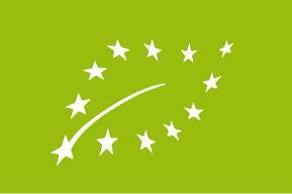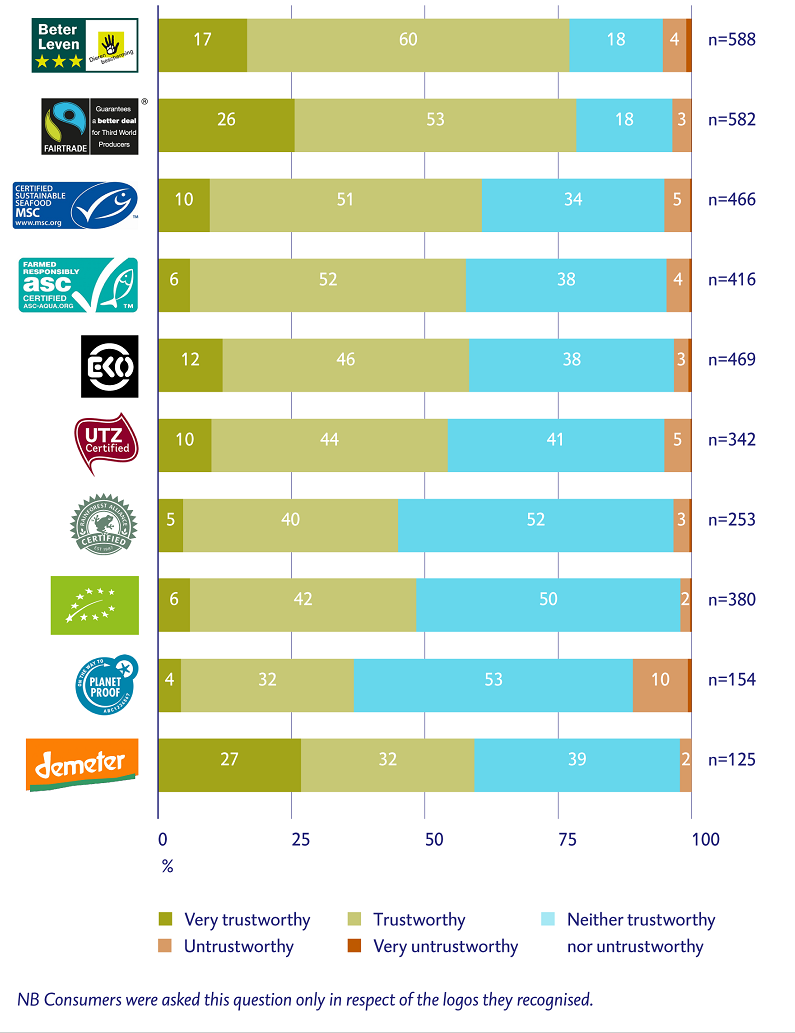Minister provides little support for EU organic logo
The Dutch Minister of Agriculture, Nature and Food Quality (LNV) does little to maintain consumer confidence in organic products. She does not take targeted measures, for instance, to increase awareness of the EU organic logo. Yet organic production can help achieve the minister’s ambition of a circular farming industry.

Consumers are presented with a plethora of logos and ecolabels making sustainability claims about the environment, biodiversity, animal welfare, working conditions and the like. The only eco food label that is underpinned by the government, however, is the EU organic scheme symbolised by the green leaf logo. The logo is compulsory on all pre-packaged organic products that are produced in the European Union. One of the aims of the EU logo is to maintain consumer confidence in organic products
Confidence in EU Logo is low
A study commissioned by the Netherlands Court of Audit found that Dutch consumer confidence in the EU organic logo is relatively low. Only half of Dutch consumers recognise the logo and most of those who do recognise it do not know precisely what is signifies. Moreover, only half of the consumers who recognise the logo said they had confidence in it. Consumers recognised and had more confidence in other – private – ecolabels, such as Fairtrade and Beter Leven.
Dutch consumers have less confidence in the EU organic logo than in other eco food labels

The Netherlands Court of Audit concludes from the consumer study that the provision of public information on the EU organic logo can make a difference. If consumers are told about the differences between organic and non-organic tomatoes, for instance, 57% would prefer the organic version, despite the higher price. Without this information, only 30% would buy organic tomatoes. The Minister of LNV, who is responsible for the logo in the Netherlands, subsidises public information campaigns but does not specifically promote the EU organic logo. She does not monitor changes in consumer confidence in organic products or take targeted measures to maintain it.
Not all organic businesses are controlled
Under the EU Organic Regulation, the Netherlands is obliged to set up a control system. The system managed by the Minister of LNV consists of the Netherlands Food and Consumer Products Safety Authority (NVWA), the Netherlands Enterprise Agency (RVO.nl), Customs and Skal Biocontrole. In 2017 and 2018, Skal was unable to inspect all the accredited businesses, as required under EU rules. Skal must inspect more than 5,000 farms, transporters, storage companies and processors of organic products at least once every year. In 2019, it did carry out all the compulsory inspections. This led to the temporary suspension of 12 business’s accreditation.
Skal does not have the power to institute criminal proceedings but the NVWA inspectorate does. It can, for instance, investigate the use of unauthorised pesticides or suspected fraud. However, it has agreed with the Ministry of Agriculture that it will not apply its capacity to investigate organic farming in 2020 unless food safety is at risk.